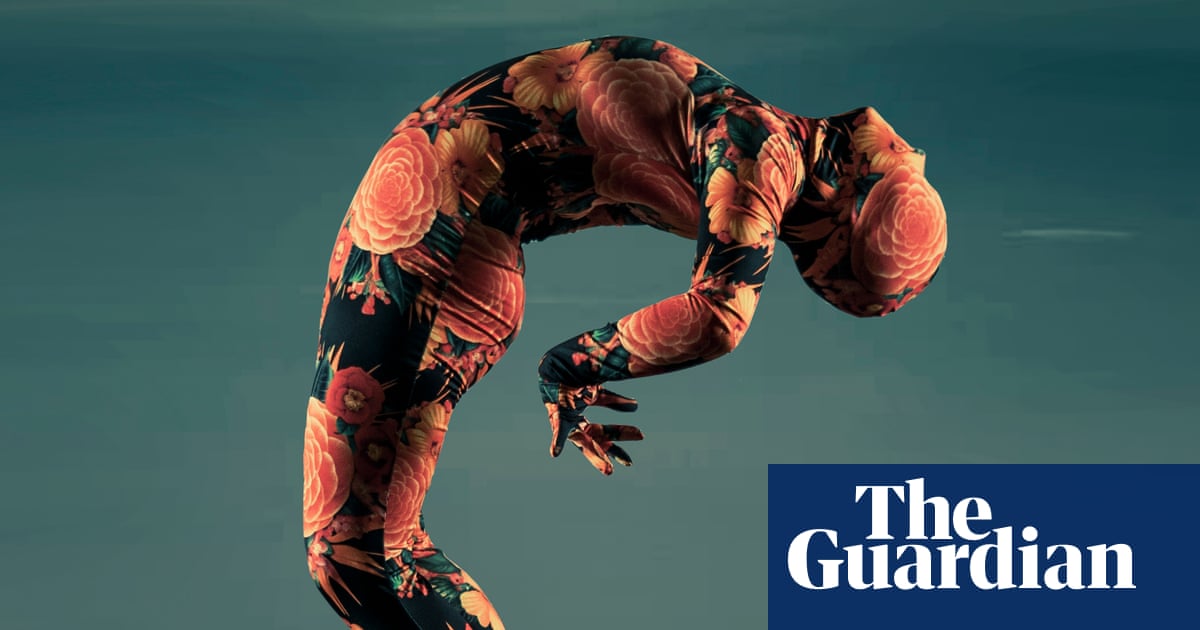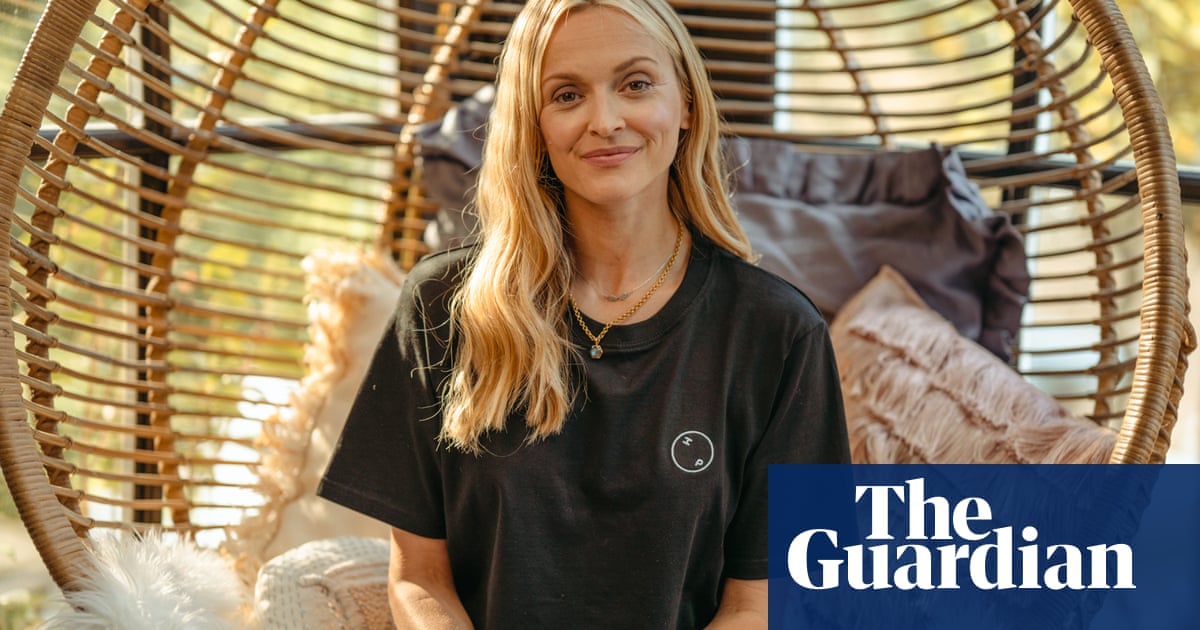
‘Since I was little, I’ve always been told that I am the weird one,” says Rocío Molina. “Like an alien,” she adds, speaking through a translator over video call from Spain. Weird in the world of flamenco, she means, where Molina is, at 39, now one of the art form’s major international stars.
She started dancing aged three in Málaga. “I was different physically,” she says. “I wasn’t tall. I wasn’t slim. I wasn’t flamenca enough, you know? I didn’t have a Gypsy face.” But even as a child she decided she didn’t care about that, and put all her focus into dance. “For me it was difficult to live in the world the way it was presented to me. And dancing was a way to escape. I felt like I was running away constantly, and my way of doing that was through dance.”
It is exactly Molina’s difference that makes her such a compelling performer. In works she has brought to the UK, including Bosque Ardora (Burning Forest) and Caída del Cielo (Fallen from Heaven) she moves in jaw-dropping ways: unexpected, angular, sometimes comical, intense, mesmerising, with blistering technique. It can be hard to find the right word for a dancer’s energetic presence, but the one I’d use for Molina is “undeniable”. Commanding without being show-offy, deeply emotional but not overwrought. In a TEDx talk she gave in Madrid in 2017 she described herself, among other things, as: impure, passionate, frisky, shameless, annoying when necessary and unstoppable.
That’s just her dancing. Then there are the productions – the worlds Molina creates for herself, which stray far beyond flamenco norms and frankly explore the female experience. In Bosque Ardora, surrounded by men, she was both hunter and hunted. In Caída del Cielo she ended up smeared in red-brown liquid as if it were menstrual blood.
She might don the long train of a traditional bata de cola dress for a production, or dress like a glam-rock toreador, or wear a PVC bondage-style costume with a crisp packet attached to the crotch. She exudes powerful femininity, and borrows from traditionally male dances as she wishes. She has talked about how she prefers to move her hips back and forth, the male way, rather than side to side as female dancers do. That she is gay has never been an issue in flamenco. “I think it was actually good for me,” she says wryly. “The musicians understood that they didn’t have to seduce me.”
Molina never set out to shake things up. “It was never my intention to change anything,” she says. “I just tell things as I see them, and I like to confront people. Because what I feel is the same thing that many other people feel, but it’s not talked about. And so my work is based on intimacy.” People might feel embarrassed about aspects, she admits, such as the somewhat masturbatory crisp packet scene, but: “I tell of the human desire we all have. And I put it on stage through my art so it’s like a collective secret we all share.”
A lot of Molina’s work is developed through improvisations, the movement deeply instinctive. Sometimes her body takes her to unexpected places. “I might see it as ugly or aggressive,” she says. “And I know sometimes that the public will not like it either. But I have to be honest with my art and my body and allow it to go, even though it might be nasty or unpleasant. I find those places are actually the most beautiful.” Because accepting the unpleasant is part of living life? “Yes, of course,” she says.
Which brings us to Al Fondo Riela, the show Molina is bringing to London to open this year’s Flamenco festival. It is part of a trilogy of stripped-back works that focus on the dancer’s relationship with the guitar – or in this case two guitarists, facing each other across a stark black stage. It was made in 2020, at a time when Molina felt she had lost her hunger and excitement about dance. But when she started to make the work, “I realised that it was the dancing that was going to heal me and rescue me like it always does. It has always done that for me.”
Seduce and convince – this is all I do with my dance
It wasn’t the dancing that was the problem, it was the weight of everything that goes with it that had dragged her down. The admin, the finances, the meetings, being stuck at a computer instead of being in the studio, the expectation to be constantly posting on social media – many things that are part of the business of being a successful artist. In the end, Al Fondo Riela was her salvation. She translates the title as “It Glimmers in the Depths”, and describes the piece as brimming with a contained energy that never quite bursts out – the kind of vibrating stillness she is a master at controlling, as it happens.
The piece is about looking into the murky depths of what it is to be human. “We have to go down and meet the shadows,” she says. “We have to meet the monsters. It’s a show that knows fear.” But what does Molina fear? “To see myself and the absurdity of human nature and to see that I’m also part of it,” she says. She talks about the need to be seen, the need to “seduce and convince – this is all I do with my dance. I wish I didn’t need these things. I fear losing humility.”
Molina doesn’t come across as an egotist as she answers my questions frankly, wearing subtly 1970s-style wire-framed glasses, her hair scraped back. She chooses to live in the countryside outside Seville, in a cortijo farmhouse in an olive grove (“My paradise”). “I feel that I need to be with ordinary people and talk about ordinary things,” she says. “That’s why I live in a village”.
She lives with her five-year-old daughter, who was born after IVF in 2018. Molina junior made her stage debut in her mum’s bare rounded belly in the show Grito Pelao, in which Molina talked about her pregnancy and danced with her own mother Lola Cruz (who studied ballet when she was young, but never danced professionally). In an Instagram post about the show, Molina thanked her sperm donor “who unknowingly has been the guest artist in this double project”.
“I couldn’t imagine being pregnant and not dancing,” she explains, when I ask her about Grito Pelao. “If I stopped it would feel like a punishment. I did what I’ve always done in my work, which is telling what’s happening to me and my body.” Was it daunting to go through IVF on her own? “It wasn’t daunting, as such. It was very difficult,” she says. But that was mainly the logistics and the slow process. “It felt very unnatural to have to programme so many things: the time to rest, the insemination itself. How long would I have to wait? How many times would I need to do it? How long could I go on without any of my employees losing their salary? And fortunately, the miracle happened.”
Inevitably, Molina’s life has changed since she became a mother. “It has made me realise that I cannot waste my time,” says Molina. And that she must take care of herself. “Because if I don’t, then I am not taking care of my daughter, and I am the only one who can look after my daughter.”
In parenting, she says, every day is like putting on a production. “I don’t really know how I’m doing it myself.” She tours less and is pickier about the projects she takes on. Her mother helps with childcare when she’s performing, “and I also have a group of friends, a tribe of women that support me,” she says. “It’s beautiful. I think this is something that happens in small villages – I don’t know if it’s the same in big cities – but I do feel very lucky to have these women around me.”
Because Molina barely stopped dancing, it didn’t take her long to return. “I was very surprised to see that the body has a lot of memory; it knows how to go back to itself, you could say.” But some things are different. “Let’s say my body has more knowledge now. I go straight to the point,” she says. “I go to the limit.”
Al Fondo Riela is at Sadler’s Wells, London, on 4 June. The Flamenco festival runs until 15 June












